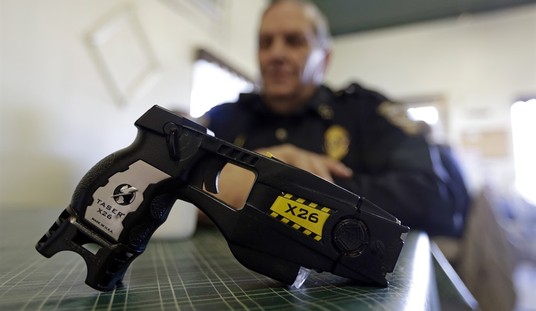Thirty years ago, Bernie Goetz made a terrible decision to waive his Fifth Amendment right after he shot four teenage criminals who tried to rob him on a New York City train. The bonafide hoodlums all boasted prior criminal records, but Goetz’s smug and imaginative memory regarding how he foiled the robbery was later used in a malicious effort to crucify him by the liberal media, the prosecutor, and race arsonist Al Sharpton.
Goetz’s bad judgment to talk to the police serves as an excellent example of exactly what not to do—EVER—according to practically every defense attorney in America. Of course, Mr. Goetz merely joined a long list of innocent people who have made the same ill-fated decision after being forced to defend themselves from violent criminals.
Innocent people often want to talk to the police, the media, or anyone else who will listen following a traumatic event. The desire to exclaim one’s innocence is entirely natural, but there are plenty of natural impulses logical people need to resist.
For now, at least, let’s just focus on the self-destructive urge to talk to the police following a violent encounter.
Former Supreme Court Justice Robert Jackson could not have been more clear when he said, “Any lawyer worth his salt will tell [his client] in no uncertain terms to make no statement to police under any circumstances” (my emphasis).
Those are some powerful words from a mighty legal mind. Justice Jackson’s resume included his service as Attorney General of the United States and the Chief Prosecutor of the Nuremberg Trials.
Nevertheless, Bernie Goetz, like many other innocent individuals who failed to resist the counterproductive impulse to speak to the police, found himself the defendant in a criminal trial (not to mention the target of a despicable political agenda).
By waiving the Fifth Amendment, Goetz volunteered information that was used to create a misleading narrative about him. Had he immediately exercised his right to remain silent—as Justice Jackson’s statement strongly advises—the innocent Goetz might have never suffered the mental and financial anguish of an attempted murder trial.
It’s not like one of the teens Goetz shot to abort the robbery would later brutally rape a pregnant woman–oh wait, yes, it is. In fact, at the time of Goetz’s trial, the robber and rapist (or “Goetz’s victim” to the liberal media and the prosecutor) was serving 8-25 years in state prison on his rape conviction. His courtroom behavior during Goetz’s trial demonstrated ”viciousness and selfishness more eloquently than words could,” according to the trial judge.
Nevertheless, Goetz’s misfortune followed the generic racial plot that the nation has witnessed in subsequent justified shootings like Joe Horne’s in Texas, George Zimmerman’s in Florida, and now–perhaps–officer Darren Wilson’s in Missouri. In all of these cases, these individuals jeopardized their innocence by providing statements to police.
In fact, in Goetz’s case, his weird and inflammatory police statement would also be used against him during his subsequent civil trial.
[article continues on next page]

As with Horn and Zimmerman, what Goetz told the police was used by the liberal media to portray an innocent man as a villain while the media bent over backwards to create the impression that irrefutable criminals—who, according to one who sued him, sized Goetz up as “easy bait” for a robbery (until he shot them)—were victims.
Fortunately, despite Goetz’s self-undermining decision to talk to the police after the shooting, Goetz eventually would be acquitted of all charges–except for carrying the gun.
Among all the injustices that Bernie Goetz endured during his horrifying ordeal, the conviction for carrying the gun that stopped the robbery seems particularly disgusting. New York authorities had arbitrarily denied Goetz’s application for a permit to legally carry his gun after Goetz suffered a previous robbery in which three other juvenile delinquents threw him through a plate-glass door and permanently injured his knee.
The state of New York informed Goetz that his stated need to carry a gun was insufficient. Of course, the four robbers Goetz justifiably shot on the subway proved that the government was wrong, but Goetz spent eight and half months in prison anyway.
Like Goetz, Joe Horne and George Zimmerman also became the targets of political agendas, and their own voluntary statements provided to the police were used to create misleading impressions that both innocent men had committed murders.
In Missouri, it was astonishing to learn that officer Darren Wilson waived his Fifth Amendment right and testified for four hours before the grand jury in the shooting death of Michael Brown. Whether Wilson will be indicted remains to be seen, although it appears doubtful despite the intense media and political pressure to ignore forensic facts that seem to exonerate him.
With millions of Americans simply willing to ignore glaring facts about criminals in order to justify their own feelings of social grievances, law-abiding gun owners should give Justice Jackson’s statement serious consideration.
Innocent people have the right to remain silent because the truth is too easily used to create the bogus impression that they are somehow guilty of a crime that they did not commit. Being prepared on what to say while invoking the Fifth Amendment can save your life if you survive a violent attack.








Join the conversation as a VIP Member